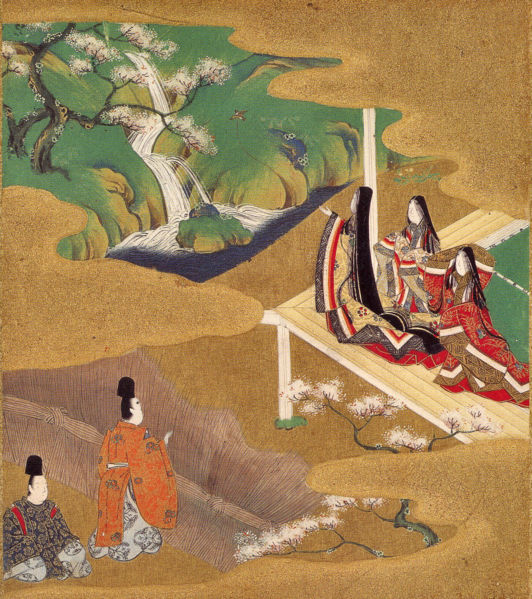

JPN/EAS 380
|
 |
 |
Text: Genji and Heike, Helen Craig McCullough, trans.
Monday, Sept. 5th |
|
Readings: |
“Introduction,” “Kiritsubo,” “The Broom Tree” (pp. 3-58) |
Questions to Consider: |
Murasaki Shikibu lived at the same time and was of the same class as Sei Shônagon. How do their works differ and in what ways are they alike? What does the story of Kiritsubo's death reveal about the society (both Heian aristocratic society in general and that of the imperial court) in which she lived? What societal norms did she transgress that resulted in her situation? According to the men's discussion in the "Broom Tree" chapter, what kinds of qualities are valued in women and why? What does this reveal about the men themselves and the society in which they lived?
|
Wednesday, Sept. 7th |
|
Readings: |
“Yûgao” and “Young Murasaki” (pp. 59-11) |
Questions to Consider: |
What are the reasons for Genji's attraction to Yûgao? How does she differ from the other women in his life? What are the reasons for Genji's attraction to the young Murasaki? Is he aware of these reasons or does he believe he is motivated by something else? In both chapters, are Genji's actions appropriate according to the expectations of his age? According to the expectations of ours?
|
Monday, Sept. 12th |
|
Readings: |
“A Celebration Amid Autumn Leaves” and “Aoi” ( pp. 113-159) |
Questions to Consider: |
"A Celebration Amid Autumn Leaves" features Genji's interactions with numerous women: Fujitsubo, Murasaki, Aoi, Naishi no Suke. What role does each woman play in relation to Genji, and how do Genji's actions toward them reflect this? It also highlights Genji's interactions with other men: Tô no Chujô and Prince Hyôbu. Do these relationships resemble those between men in our own time? Lady Rokujô is introduced for the first time in the "Aoi" chapter, but she seems to already have had a long history with Genji. What does this chapter suggest about their relationship, past and present. How does Aoi die? What explanation is given for her death, and how does it differ from the way we would explain the death today?
|
Wednesday, Sept. 14th |
|
Readings: |
“Suma” and “Akashi" (pp. 160-215) |
Questions to Consider: |
Genji's exile in Suma is self-imposed, and it is clear that most of his friends and allies feel that he is blameless. What are the reasons, both direct and indirect and both public and private, for his decision to leave? The tragic figure in exile was an appealing theme in Heian Japan. In what ways does Genji allude to this theme during his own self-imposed exile? What role does belief in the supernatural play in the events which take place in "Akashi?" How would you describe the place of the Akashi Novice and his daughter in Heian aristocratic society? Why is Genji unable to bring the Akashi Lady back with him, despite the fact that she is pregnant with his child?
|
Back to Main Page |